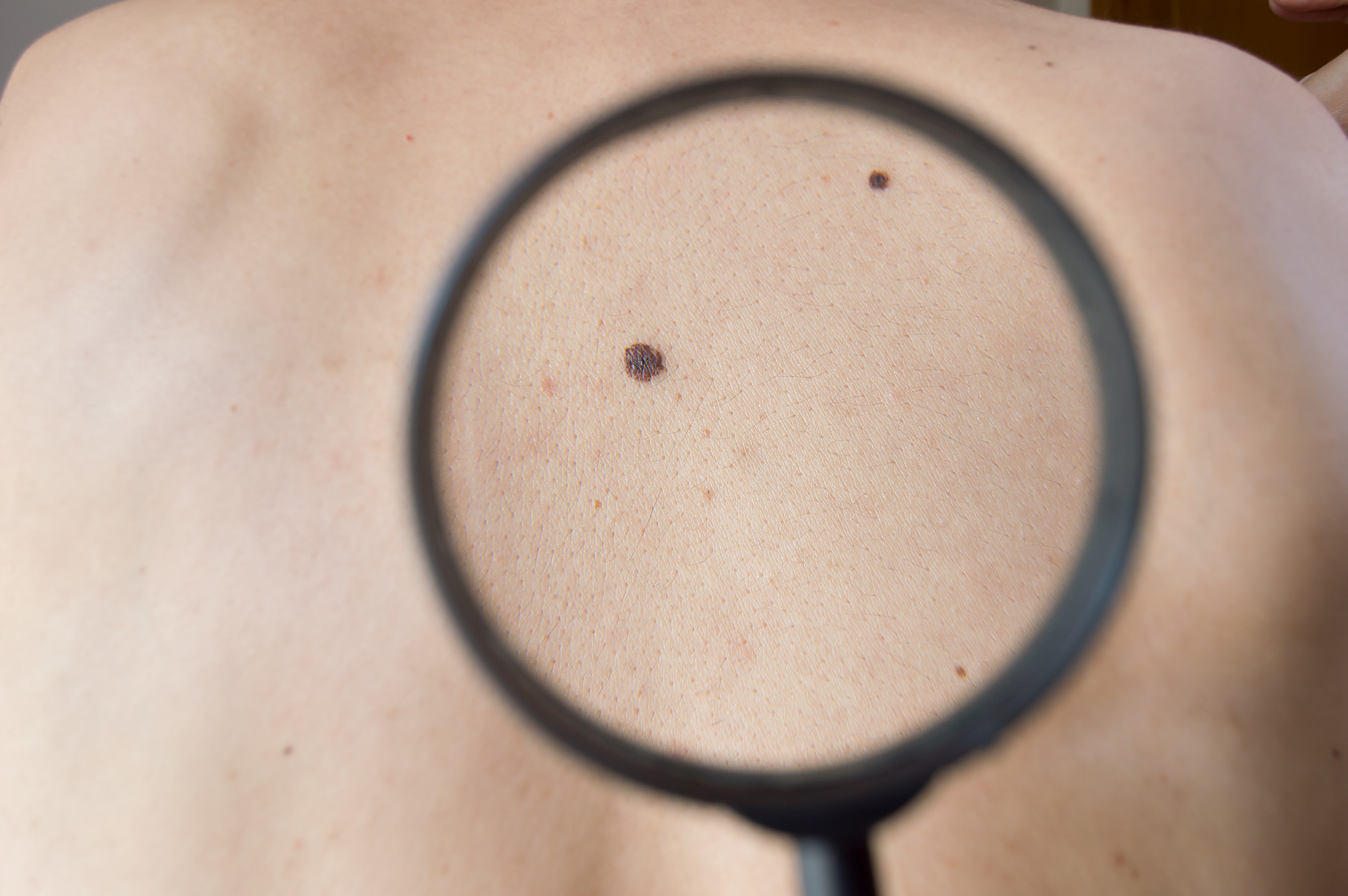 Skin Cancer is caused by an abnormal growth of skin cells linked to sun exposure, ultraviolet light and yes, tanning beds. Exposure to these elements is cumulative, so the risk for skin cancer increases as we age. It has been reported that in the past thirty years, the number of skin cancer cases exceeds the total number of all other cancers combined.
Skin Cancer is caused by an abnormal growth of skin cells linked to sun exposure, ultraviolet light and yes, tanning beds. Exposure to these elements is cumulative, so the risk for skin cancer increases as we age. It has been reported that in the past thirty years, the number of skin cancer cases exceeds the total number of all other cancers combined.
What You Should Know
- Basal Cell Skin Cancers are most common and usually occur on sun or UV exposed areas such as the face, and neck. “This type often looks flat, waxy in texture and pink or flesh-colored and shiny,” shares Ashley Evans, certified physician assistant at Sanova Dermatology in Austin, Texas.
- Squamous Cell Skin Cancers are the second most frequently diagnosed. They also affect UV and sun-exposed parts of our bodies, but sometimes are found in places not exposed. “Squamous cell cancers may look scaly, crusty, firm and reddish in color,” states Evans. “They can also resemble a wart,” she continues.
- Melanoma Skin Cancer accounts for less than 1% of all skin cancer but is the most serious. If left undiagnosed and untreated, it is the most dangerous and can be deadly. They may look darker in color, like a mole, but also appear brown or purplish as well. The highest reported cases of Melanoma are in Caucasian men over the age of 55.
- The Risk for developing non-melanoma types of skin cancer is 90% associated with UV Radiation. It has been reported that cases of Skin Cancers linked to tanning beds is greater than the link between smokers and lung cancer. For these reasons, many countries have banned tanning beds altogether.
- Actinic Keratosis is the most common precancerous lesion. It looks scaly, red and may feel sandpaper-like. “These are most commonly found in patients 40 years and older on the nose, temples, ears, and backs of hands,” Evans states. Regular skin cancer screenings will identify AKs or other abnormal skin growths before they become serious.
Prevention is possible!
Take care, wear a daily SPF 20+ to sun exposed skin and sun protective clothing if you plan to spend extended time outdoors, invest in window tint, never use tanning beds and don’t overlook regular skin checks with your Dermatologist. If anything looks irregular in between checks, please contact us with any questions or concerns you may have. We’re here to help you.
